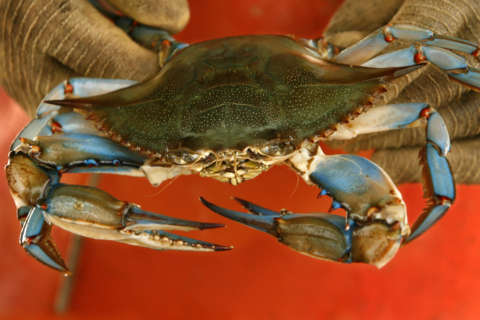
WASHINGTON — Maryland is known for delicious crab meat, but buying those crabs could cost you a lot more due to a major shortage of workers in the state’s seafood industry.
Most Maryland crab plants use workers who are in the U.S. through the H-2B visa program, which allows employers to bring foreign nationals to the country to fill temporary nonagricultural jobs. However, the federal government made a change in how those visas were awarded this year.
Now, there are fewer visas to go around in Maryland. And that is causing problems for the crab companies.
“It’s putting them out of business,” said Aubrey Vincent, vice president of Lindy’s Seafood, a wholesaler of Maryland crabs and crab meat. “It’s driving prices up, and essentially what’s going to happen is, crabbers aren’t going to have a good market for their product.”
According to the Baltimore Sun, nearly half the crab houses on the Eastern Shore do not have enough workers.
“About 40 percent of the industry right now, they don’t have the people to staff their plants,” Vincent said.
Citing unprecedented demand, U.S. Citizenship and Immigration Services awarded the visas through a lottery system instead of on a first-come, first-served basis.
The agency said it received 2,700 petitions requesting 47,000 workers across all industries, “which is more than the number of H-2B visas available.
Maryland Gov. Larry Hogan has since asked the federal government to “take immediate action” to raise the visa cap, according to the Sun.
“Many of these businesses operate in rural parts of our state and have relied on guest workers for decades,” Hogan wrote to the secretaries of homeland security and labor. “They will be forced to shut their doors or start importing crab meat if this issue is not addressed immediately.”
Vincent said the industry cannot find enough local employees to do the jobs because of the seasonal and labor-intensive nature of the work.
“Even though we’ve worked on recruiting American workers, we haven’t had much success,” she said.









